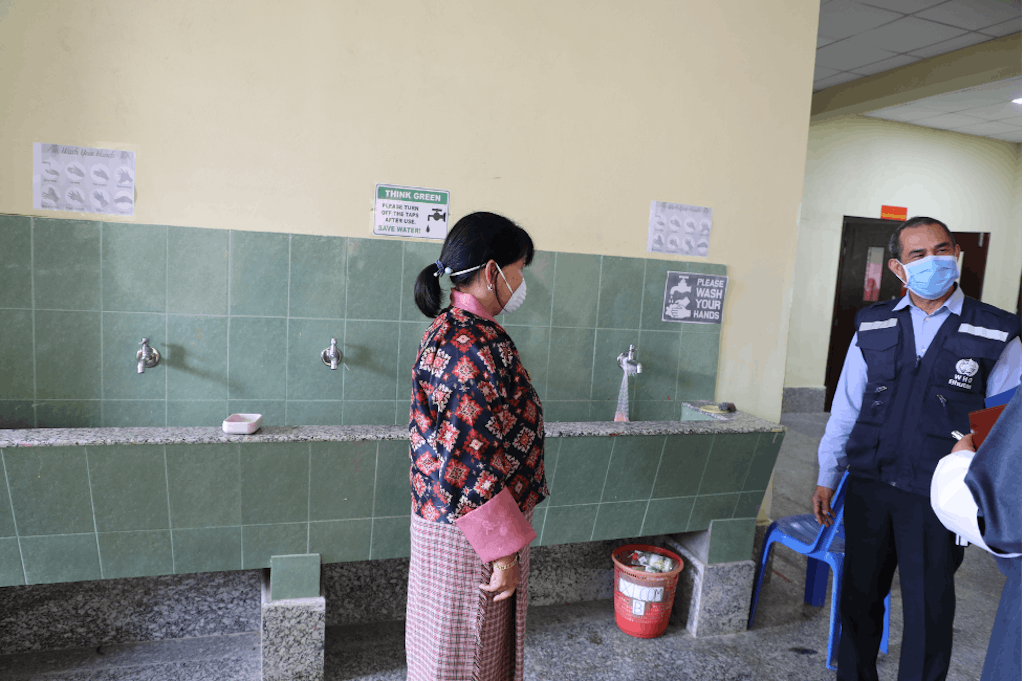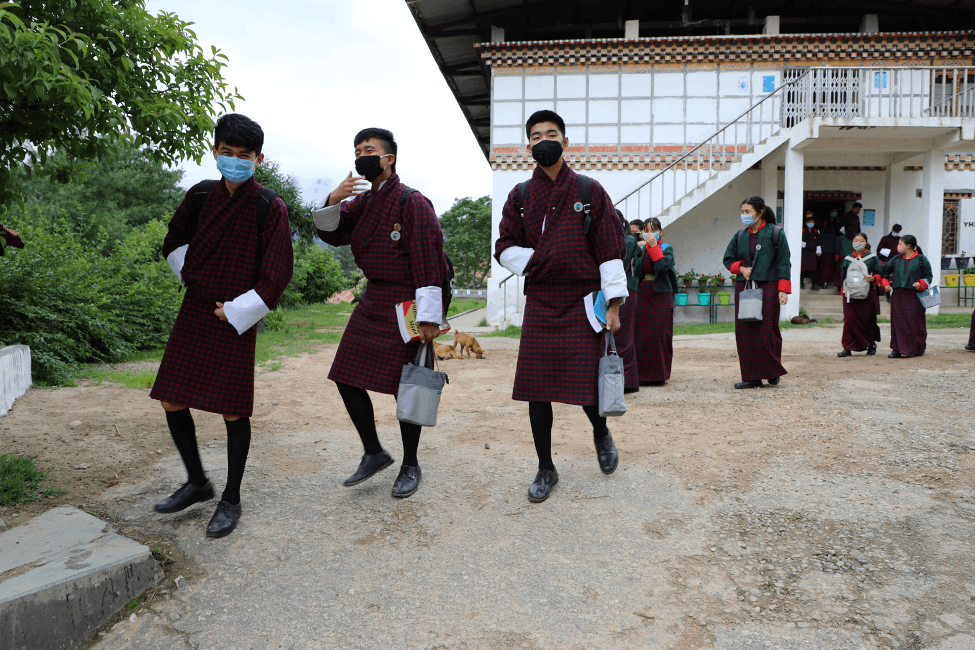A mere month earlier than the predominant case of COVID-19 was reported in Wuhan, China, the tiny Asian kingdom of Bhutan (inhabitants 775,000) was already working with the World well being group (WHO) to simulate what a nationwide response to a worldwide pandemic may doubtlessly appear to be.
contributors from all sectors — collectively with armed forces, police, civil aviation, customs and meals safety authorities, flight crews, well being officers, and a nationwide service volunteer group referred to as Desuung — brainstormed and acted out what their function can be inside the state of affairs of a passenger arriving from overseas with a suspected case of a hypothetical coronavirus illness. The prepare allowed contributors to pinpoint current weaknesses and areas of enchancment in case of an exact pandemic.
in response to WHO and Bhutan officers, this early simulation largely contributed to the nation’s success in combating the COVID-19 pandemic — with zero deaths, zero infections amongst well being workers, fewer than 500 complete circumstances, and a extreme affected person restoration — regardless of being nestled between China, the place the virus originated, and India, which has one among many highest quantity of circumstances on this planet.
With WHO’s assist, Bhutan acted early to implement core public well being measures to detect, take a look at, hint, isolate, and deal with circumstances. The nation additionally labored to scale up the performance of well being care workers, hospitals, laboratories, and guaranteeing that the supply of important well being companies wouldn’t be affected even all by a lockdown.
Years of emergency preparation
Dr. Rui Paulo de Jesus, the WHO consultant to Bhutan, traces the nation’s worthwhile COVID-19 efforts all of the best means again to 2018 when Bhutan underwent a joint exterior evaluation of its emergency readiness. He defined that emergency preparedness and response is amongst the numerous eight flagship functions inside the WHO South-East Asia area, and its significance is emphasised in every work plan.
“Even earlier than the COVID-19 outbreak emerged, WHO invested a vital quantity of funds to reinforce preparedness for every pure disasters and illness outbreaks,” he mentioned.
WHO labored carefully with the Bhutan authorities to arrange a well being emergency operations coronary heart as properly as to a WHO Emergency Operations coronary heart. WHO additionally invested in devices equivalent to Medical Camp equipment tents, which is ready to be deployed inside hours if there’s service disruption in well being care amenities. one among some methods the tents have been used, for event, is as flu clinics to deal with sufferers with respiratory illness signs to cease them from mixing with completely different sufferers and spreading infectious illnesses equivalent to COVID-19. The clinics additionally carry out screening websites for COVID-19.
The Bhutan Ministry of well being additionally labored with WHO to strengthen laboratory capacities, collectively with upgrading the Royal Centre for illness administration by offering devices and teaching workers. The work continues to at the present time and has been a essential an component of Bhutan’s COVID-19 preparedness and response.
ready for the pandemic
as a end result of the COVID-19 pandemic started to overhaul the world, teaching entrance-line workers grew to become more and more very important. using protocols supplied by WHO, Bhutan assigned and educated workers to information the entrance-line response. De Jesus defined how even earlier than the predominant COVID-19 case was reported inside the nation, well being care workers underwent weekly teaching on the best method to correctly positioned on and take off private defending devices (PPE), “so it may discover your self to be second nature.” WHO supported the group by delivering PPE and offering funding assist.
The group is an component of the nation’s Technical Advisory Group for the COVID-19 response, which gives a day by day evaluation of the epidemiological state of affairs. inside the preliminary days of the outbreak, the WHO nation office performed a key function in updating and sharing the latest technical pointers and strategies to design a well timed nationwide response with the Ministry of well being.

This prep work and teaching ensured that when the predominant case was recognized in Bhutan in March, the group was in a place to maneuver in a quick time. The COVID-optimistic lab outcomes acquired here at midnight, and by 6 a.m., all of the related contacts had been recognized, remoted, and positioned in quarantine.
“No nation on this planet will be a hundred% ready for a public well being menace,” says de Jesus. however when there’s something to be taught from Bhutan, it is that preparedness is the 1st step in direction of worthwhile the battle in opposition to COVID-19 and future pandemic threats.
“it is now evident to all of us that it is worth it to place money into emergency preparedness in all points. As WHO, we have to repeatedly evaluation our readiness as a end result of the COVID-19 pandemic ought to not be the final one,” de Jesus mentioned.
This article initially appeared on the World well being group’s webpage and has been edited and republished with permission.
think about A DONATION at the second
every donation makes a distinction. assist WHO’s lifesaving efforts to answer the COVID-19 pandemic by giving to the COVID-19 Solidarity Response Fund.
you’d possibly have the prospect to be taught extra about WHO’s lifesaving work throughout the globe right here, and discover particulars of how funds are used to assist COVID-19 efforts right here.
Featured picture: WHO Bhutan

